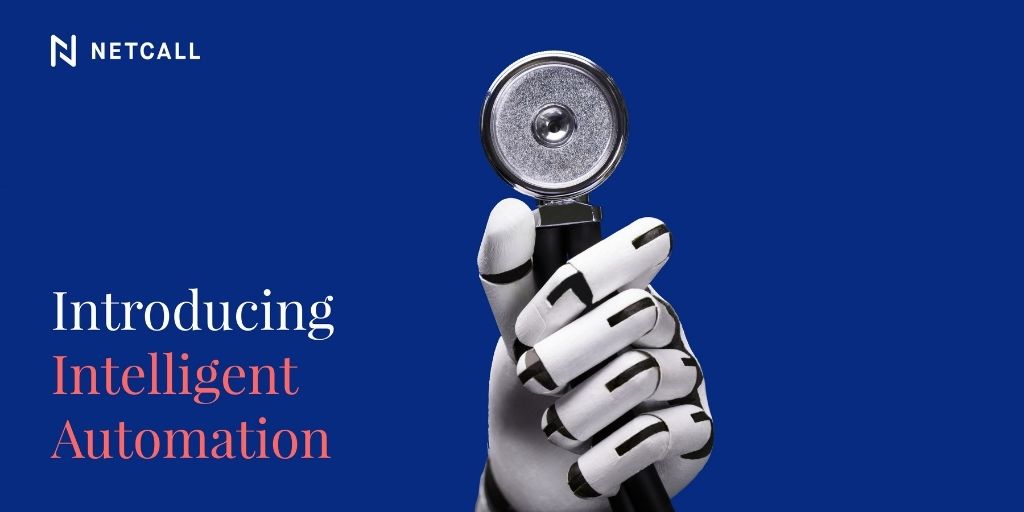
The pandemic continues to put the NHS under monumental pressure and the repercussions are impacting an array of services within the healthcare sector. And, despite the COVID vaccine rollout and the Government’s COVID roadmap, we are not out of the woods just yet. As firefighting has been the priority over the last year, multitudes of consultations, procedures and surgeries were postponed. The significant backlog of non-COVID related appointments, has seen 4.6m people on a hospital waiting list. To overcome this and improve patient experience, optimum efficiency will be critical.
The pandemic has spiked huge investment into digital acceleration. Throughout 2020, the sector has witnessed a surge in patients using NHS login accounts to access digital health and care services, which has played a huge role in relieving the demand on NHS staff. Trusts have been instrumental in helping with the vaccine rollout, with some developing support apps designed to help with consent and appointment reminders. But healthcare has barely scratched the surface of what can be achieved with the right technology.
Richard Farrell is Chief Innovation Officer at Netcall, which helps organisations to build great customer experiences with engagement and intelligent automation solutions. He believes that intelligent automation could be the answer for healthcare.
Automate to renovate
Intelligent automation in healthcare will be instrumental in the growth and development of the NHS. Healthcare faces with the realities of huge patient backlogs, requiring streamlined internal processes to overcome. Outdated and manual administrative processes simply will not suffice. The importance of this digital transformation is clear: every letter posted is money that could be spent on patient care. And every missed appointment is an opportunity wasted to provide that care.
The rapid nature of the pandemic left little time to streamline internal processes, so the use of spreadsheets and other manual processes proliferated purely to keep up. Moving forward, these inflexible processes, especially those that are prone to human error, must be replaced with a long-term solution that is underpinned by intelligent and automated technologies.
The time has been and gone for healthcare providers to consider and contemplate the ways that automation can help improve efficiency. Now is the time to act – and fast.
Every NHS Trust should be examining processes to prioritise what can be automated and taken off over-stretched human workers. This includes utilising robotic process automation (RPA) and low-code to automate tasks such as invoice processing and back-office administration. This will increase efficiency and help alleviate patient backlogs. It will also give healthcare staff more time to focus on what really matters: patient care.
RPA and low-code – the healthcare dream team
Whilst RPA alone can provide organisations with an array of benefits, these results can be enhanced through the use of Platform-as-a-Service (PaaS) technologies, such as low-code. These two technologies can work in complete harmony, with RPA handling the tasks and low-code managing the processes, enabling healthcare providers to redistribute resources and focus more on patient care.
The main benefit of low-code is the speed in which it can deliver solutions to help alleviate healthcare pressures, such as appointment backlogs and fast-paced vaccine rollouts. Its ease of use means that everyday users can develop processes and take ideas from concept to reality with minimal IT intervention, in minimal time. This is particularly important in a rapidly evolving landscape where new government guidelines require new decisions and process changes to be made on a weekly, or daily, basis. Organisations have advanced the use and benefits of RPA, with one Belgium hospital incorporating it in the review process of patient records for dispensing prescription medication.
One area that the RPA and low-code partnership excels, is within healthcare call and appointment booking centres. Previously, advisors had to navigate multiple systems simultaneously whilst also engaging with patients on the phone. The effort and time taken to input information naturally detracted focus from the caller. Low-code and RPA can help deliver quality and efficiency benefits here, as they can navigate those systems and automate processes on behalf of advisors, while they deal with the more emotional and human side of interactions.
Behavioural and cultural shifts
Patient communication preferences have been in a great deal of flux during the pandemic. There was a big, forced shift towards digital engagement, but the majority of healthcare patients generally see tech as something to supplement, not replace, face-to-face interaction. However, preference has shifted again, with most wanting to avoid surgeries from fear of infection. When considering the best communication channels, healthcare staff need to be mindful of the demographic of patients and ensure that communication channels are accessible to all. For example, the elderly may be less digitally adept and might struggle with video consultations. Telephone and text messaging services continue to be vital lifelines for many, particularly in situations of high-level patient engagement, such as waiting list applications. Research shows that UK citizens agree the telephone has been a crucial communication method during the pandemic.
Voice messaging is a key area that businesses should consider and develop. Automated phone responses, whilst effective in freeing up frontline workers, can seem impersonal. People respond better to people, especially when it comes to their health. Providing patients with a voice recorded message from an actual person – instead of a robot – can reassure them that there is a human ready to help.
The future of intelligent automation in healthcare
The future of health and technology is expanding in many different directions, but there is still a long way to go. Other industries are accelerating through technological development – from automated insurance claims handing to proactive notification in delivery services. It’s time for healthcare to do the same. Intelligent automation in healthcare can help by making the time for joined-up patient journeys. These strong patient interactions, aided by technology, will bring patients and healthcare providers closer together, propelling the NHS forward into a more stable future.
Find out more from Netcall about intelligent automation at netcall.com/intelligent-automation










